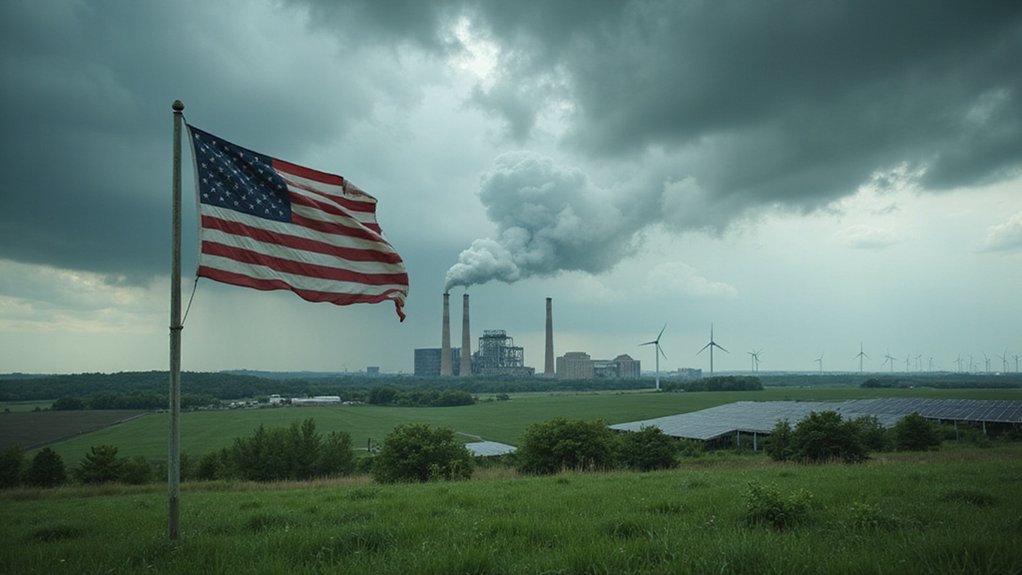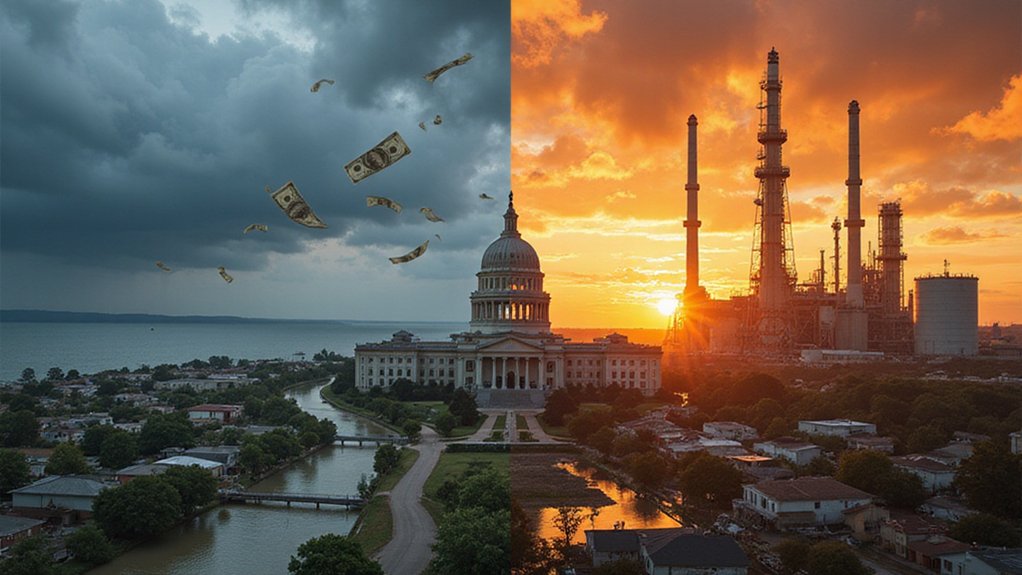As President Trump signed an executive order withdrawing the United States from the Paris Agreement for the second time, America has positioned itself as an outlier in global climate efforts. The January 20, 2025 action creates a void in U.S. climate leadership on the world stage. Trump’s move aligns with his “America first” policy regarding international environmental agreements.
The withdrawal contradicts the U.S. pledge to reduce greenhouse gases by 61-66% by 2035. Now federal agencies are rolling back climate policies, regulations, and laws. The administration’s “Project 2025” calls for a complete reversal of U.S. climate action. These changes follow patterns set during Trump’s previous term.
America’s climate commitment dissolves as federal agencies dismantle environmental protections under Project 2025’s sweeping reversals.
With these rollbacks, experts predict U.S. emissions reductions may reach only 33-43% by 2035 compared to 2005 levels. However, state governments aren’t giving up. New York proposed climate disclosure rules despite federal changes. Research demonstrates that climate change negatively impacts economic performance across U.S. states. These state efforts could help achieve 54-62% emissions reductions by 2035, offsetting some federal inaction.
America’s exit threatens its role in the global clean energy evolution. The policy shift benefits oil and gas companies at the expense of international cooperation. It undermines worldwide efforts to fight climate change effectively. The withdrawal could push global temperatures toward a dangerous 2.5 to 2.9 degrees Celsius increase as other major emitters might follow America’s lead.
The economic impacts are significant too. Policy reversals threaten clean energy investments made under the Inflation Reduction Act. Job growth in green sectors faces uncertainty, and America might lose competitive advantages in emerging clean energy markets. This comes at a time when renewable energy is breaking records globally, with solar capacity expanding and clean energy accounting for 38% of global energy supply growth.
National security experts worry as well. The rollbacks put at risk measures protecting defense assets from climate threats. America’s standing on environmental issues is weakening, despite the Pentagon’s recognition of climate as a security concern.
As federal leaders step back from climate action, states continue pushing forward independently. This split approach leaves America isolated on the global stage, while other nations maintain their climate commitments and advance toward a cleaner energy future.
References
- https://www.whitehouse.gov/presidential-actions/2025/01/putting-america-first-in-international-environmental-agreements/
- https://www.americanprogress.org/article/project-2025-would-jeopardize-global-climate-action/
- https://2021-2025.state.gov/climate-crisis/
- https://greencentralbanking.com/2025/03/07/us-states-forge-ahead-with-climate-rules-even-as-trump-rolls-back-policies/
- https://www.americaisallin.com/advancing-us-climate-action-under-federal-policy-rollbacks







